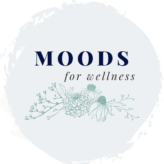Information for GP's and Psychologists
Peer Reviewed Clinical Trials for Nutritional and Herbal Medicines and Mental Health
Welcome, here you will find information for GP’s and Psychologists with links to the evidence for natural medicines and mental health. We look forward to collaborating with you in the mutual care of our patients.
Moods for Wellness is an accredited Naturopathy service. We encourage all patients to establish an integrative care team including General Practitioners in Sydney and Psychologists in Sydney and Telehealth services Australia wide. Please phone, email, fax or write to us with any questions you may have about joining our referral network.
*Please note information found on this page is intended for Sydney GP’s and Sydney Psychologists as well as other health practitioners and is not a substitute for individual health advice. Any prescriptions should be discussed with a qualified health practitioner. If any information found on this site raises questions or concerns contact your health provider. If you are experiencing a Mental Health crisis phone LifeLine on 13 11 14. In case of emergency contact 000.
This page will be updated regularly, check back for updates or subscribe to our mailing list for notifications.





Information on the services we offer can be found here.
Hypericum perforatum (St Johns Wort)
Canenguez Benitez, J. S., Hernandez, T. E., Sundararajan, R., Sarwar, S., Arriaga, A. J., Khan, A. T., Matayoshi, A., Quintanilla, H. A., Kochhar, H., Alam, M., Mago, A., Hans, A., & Benitez, G. A. (2022). Advantages and Disadvantages of Using St. John’s Wort as a Treatment for Depression. Cureus, 14(9), e29468. https://doi.org/10.7759/cureus.29468
Cui, Y. H., & Zheng, Y. (2016). A meta-analysis on the efficacy and safety of St John’s wort extract in depression therapy in comparison with selective serotonin reuptake inhibitors in adults. Neuropsychiatric disease and treatment, 12, 1715–1723. https://doi.org/10.2147/NDT.S106752
Crocus sativa (Saffron)
Lopresti, A. L., & Drummond, P. D. (2014). Saffron (Crocus sativus) for depression: a systematic review of clinical studies and examination of underlying antidepressant mechanisms of action. Human psychopharmacology, 29(6), 517–527. https://doi.org/10.1002/hup.2434
Rosmarinus officinalis
Passiflora incarnata (Passionflower)
Piper methysticum (Kava Kava)
Rhodiola rosea
Darbinyan, V., Aslanyan, G., Amroyan, E., Gabrielyan, E., Malmström, C., & Panossian, A. (2007). Clinical trial of Rhodiola rosea L. extract SHR-5 in the treatment of mild to moderate depression. Nordic journal of psychiatry, 61(5), 343–348. https://doi.org/10.1080/08039480701643290
Ross S. M. (2014). Rhodiola rosea (SHR-5), Part 2: A standardized extract of Rhodiola rosea is shown to be effective in the treatment of mild to moderate depression. Holistic nursing practice, 28(3), 217–221. https://doi.org/10.1097/HNP.0000000000000030
Withania somnifera (Winter Cherry, Ashwaganda)
Melissa officinalis (Lemon balm)
Matricaria recutita (Chamomile)
Amsterdam, J. D., Li, Y., Soeller, I., Rockwell, K., Mao, J. J., & Shults, J. (2009). A randomized, double-blind, placebo-controlled trial of oral Matricaria recutita (chamomile) extract therapy for generalized anxiety disorder. Journal of clinical psychopharmacology, 29(4), 378–382. https://doi.org/10.1097/JCP.0b013e3181ac935c
Curcuma longa
Collaborative Care Considerations
Woroń, J., & Siwek, M. (2018). Unwanted effects of psychotropic drug interactions with medicinal products and diet supplements containing plant extracts. Niepożądane efekty interakcji leków psychotropowych z produktami leczniczymi i suplementami diety zawierającymi wyciągi roślinne. Psychiatria polska, 52(6), 983–996. https://doi.org/10.12740/PP/OnlineFirst/80998
